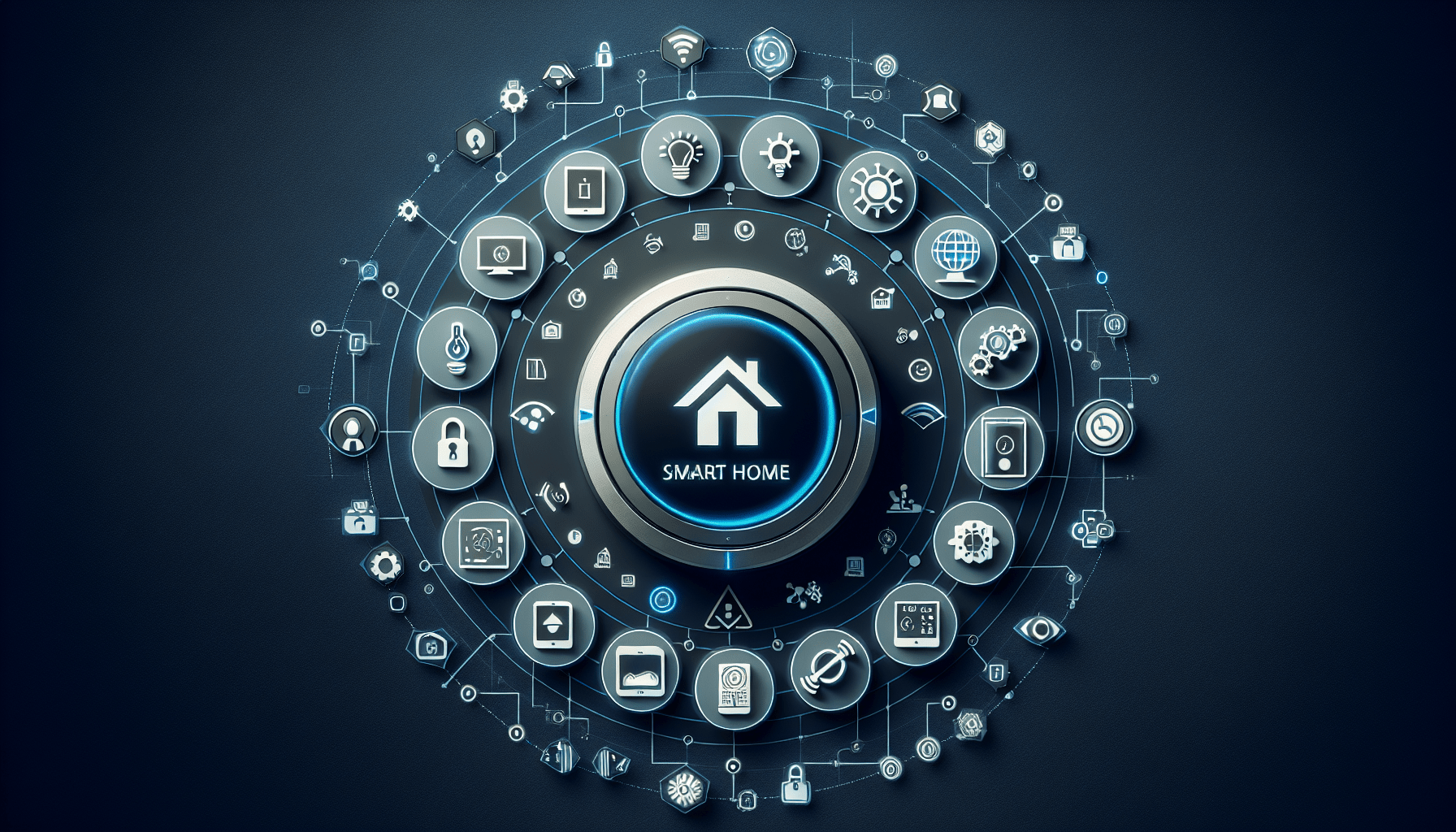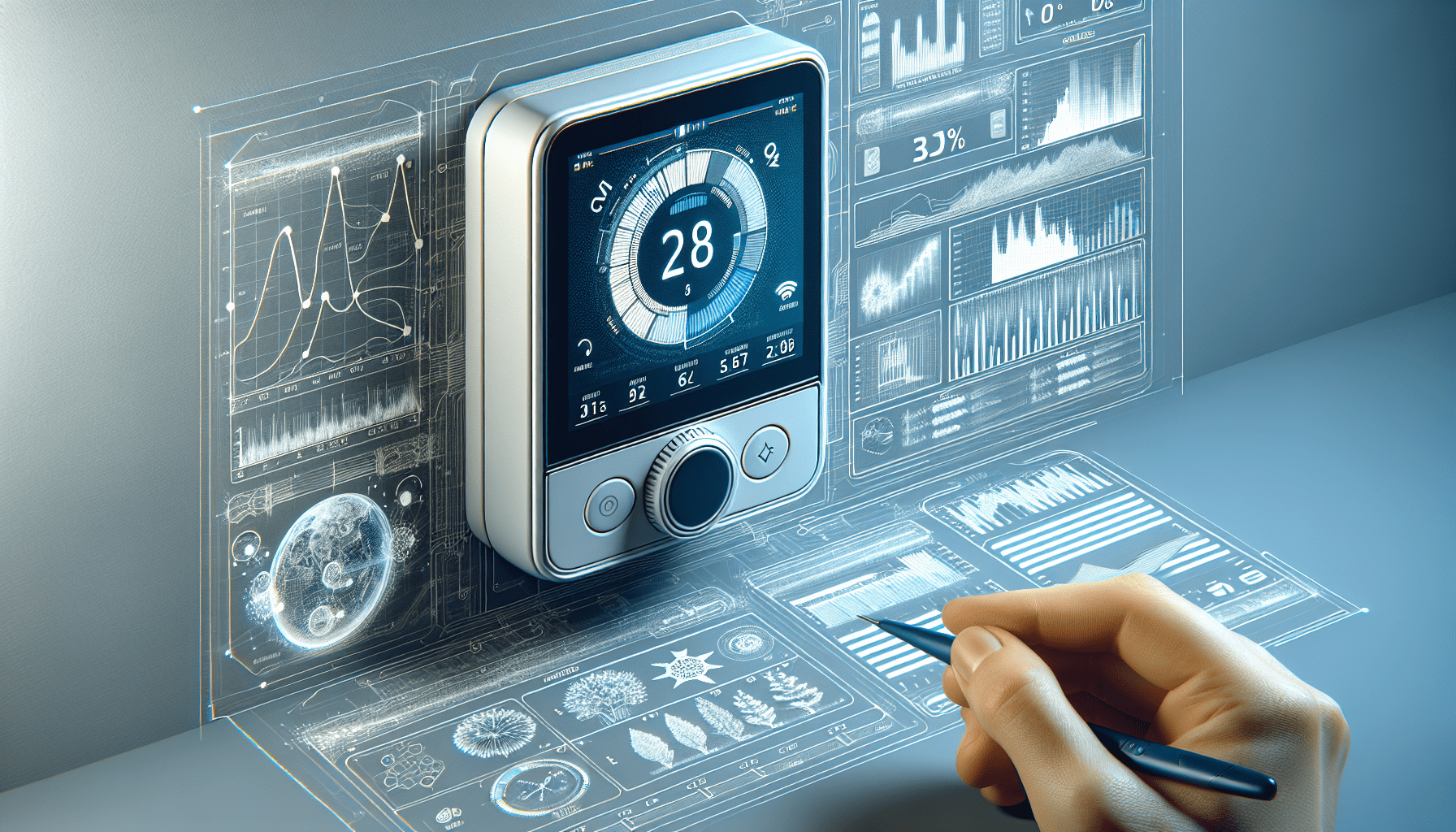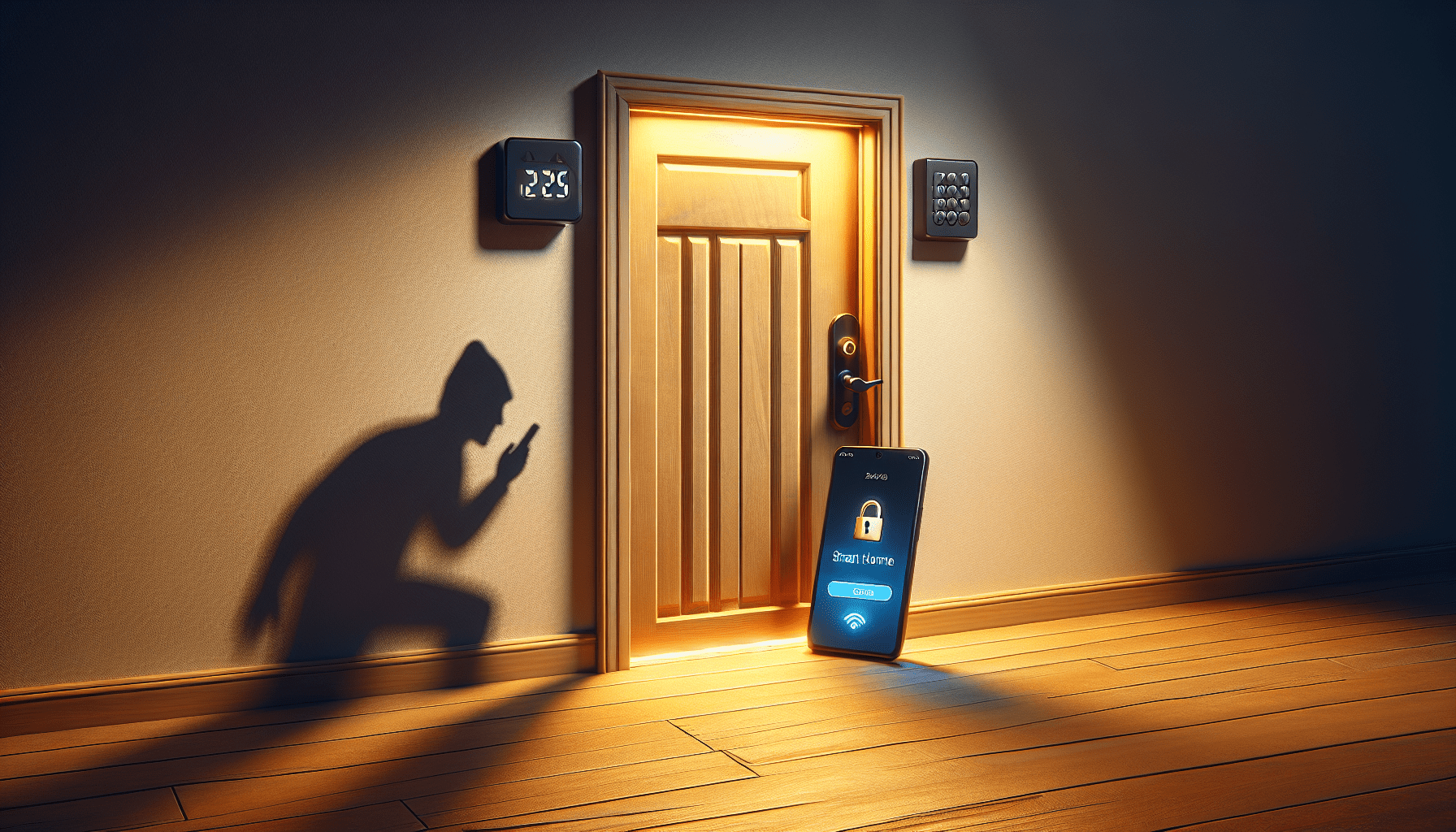Imagine living in a home that knows your every preference, from adjusting the temperature to playing your favorite music as soon as you walk through the door. With the rise of smart home technology, this futuristic scenario is quickly becoming a reality. But what does this mean for the real estate market? In this article, we will explore the impact of smart homes on real estate value and how these innovative features are reshaping the way we buy and sell homes. From increased efficiency to enhanced security, the influence of smart homes on the housing market is undeniable. So, get ready to discover how these cutting-edge advancements are transforming the way we view and evaluate properties.
Increased Demand for Smart Homes
Growing trend of smart home technology
The demand for smart homes has been steadily increasing as more and more homeowners embrace the convenience and automation that these homes offer. With the advancement of technology, smart home devices have become more accessible and affordable, making them appealing to a wider range of buyers. From controlling the lights and temperature with a voice command to monitoring security cameras remotely, smart homes offer a level of convenience and comfort that traditional homes cannot match.
Desire for convenience and automation
One of the main reasons behind the increased demand for smart homes is the desire for convenience and automation in everyday life. Smart home devices allow homeowners to control various aspects of their homes with just a few taps on their smartphones or by using voice commands. From adjusting the thermostat to locking the doors and turning off the lights, these automation features simplify daily tasks and routines, making life more efficient and hassle-free.
Appeal to tech-savvy buyers
Smart homes also have a strong appeal to tech-savvy buyers who value the latest technological advancements. These buyers are drawn to the idea of living in a connected home where they can seamlessly integrate their smart devices and appliances. The ability to control their home from anywhere in the world and receive real-time updates and alerts adds to the overall appeal of smart homes. As technology continues to advance, smart homes are likely to become an even more desirable option for tech-savvy buyers.
Higher Selling Prices
Smart home features as a selling point
Properties with smart home features are often seen as more desirable and can command higher selling prices in the real estate market. Buyers are willing to pay a premium for the convenience and advanced technology that smart homes offer. A home equipped with smart thermostats, automated lighting, and security systems becomes more attractive to potential buyers who are looking for a modern and convenient living experience.
Perceived value and premium pricing
The perceived value of a smart home is higher than that of a traditional home. Buyers often view smart home features as a worthwhile investment that will provide long-term benefits and cost savings. As a result, sellers can justify higher asking prices for homes with smart features, leading to increased selling prices in the market. Buyers are willing to pay extra for the added convenience, security, and energy efficiency that smart homes offer.
Comparative advantage over traditional homes
In today’s competitive real estate market, having smart home features can give sellers a comparative advantage over traditional homes. A home with smart features stands out among other listings, attracting more potential buyers and generating increased interest. This advantage becomes even more pronounced as the demand for smart homes continues to rise. By embracing smart home technology, sellers can position their properties as modern and desirable, resulting in higher selling prices and quicker sales.
Improved Energy Efficiency
Smart thermostats and energy management
Smart home technology plays a crucial role in improving energy efficiency in residential properties. Smart thermostats, for example, allow homeowners to control the temperature of their homes remotely and set personalized schedules based on their preferences. This level of control and automation helps optimize energy usage, reducing utility costs and environmental impact. By monitoring energy consumption and making adjustments accordingly, smart homes contribute to a more sustainable and eco-friendly living environment.
Lowering utility costs for homeowners
One of the most noticeable benefits of smart home technology is the ability to lower utility costs for homeowners. With smart meters and energy monitoring systems, homeowners can track their energy consumption in real-time and identify areas of inefficiency. Smart devices can automatically adjust energy usage based on factors such as occupancy, time of day, and weather conditions, resulting in significant cost savings over time. By optimizing energy usage, smart homes help homeowners reduce their carbon footprint and save money on utility bills.
Environmental benefits and sustainability
In addition to cost savings, smart homes also offer significant environmental benefits. By conserving energy and reducing carbon emissions, smart homes contribute to a more sustainable future. From intelligent lighting systems that automatically turn off lights in unoccupied rooms to smart irrigation systems that optimize water usage, these features help homeowners minimize their impact on the environment. For environmentally-conscious buyers, the energy efficiency and sustainability of smart homes can be a major selling point.
Enhanced Security and Safety
Smart locks, cameras, and alarm systems
One of the key advantages of smart homes is the enhanced security and safety they provide. Smart locks, cameras, and alarm systems offer homeowners peace of mind by allowing them to monitor and control access to their homes remotely. With smart locks, homeowners can lock and unlock their doors using their smartphones, eliminating the need for physical keys and reducing the risk of unauthorized access. Smart security cameras provide real-time video surveillance, sending alerts and recordings to homeowners’ devices, helping to deter and detect potential threats.
Peace of mind for homeowners
The increased security and safety features of smart homes provide homeowners with peace of mind. Whether they are at work, on vacation, or simply away from home, homeowners can remotely monitor their property and receive instant notifications in case of any security breaches. This level of control and awareness allows homeowners to respond quickly to potential threats, minimizing the risk of break-ins or other security incidents. Knowing that their homes are protected by advanced technology brings a sense of security and peace of mind to homeowners.
Potential insurance savings
Smart home security systems can also lead to potential savings on homeowners’ insurance premiums. Insurance companies often offer discounts and incentives for homes equipped with security systems, as these features lower the likelihood of theft and property damage. By investing in smart home security systems, homeowners can not only protect their homes but also potentially reduce their insurance costs. This added financial benefit makes smart homes even more attractive to buyers and can contribute to higher selling prices in the real estate market.
Ease of Home Management
Smart home automation and remote control
Smart home automation allows for seamless control and management of various aspects of the home. From adjusting lights and temperature to controlling appliances and entertainment systems, homeowners can easily manage their homes from a single device or even through voice commands. The ability to remotely control and monitor home devices provides a level of convenience that traditional homes lack. With the touch of a button, homeowners can create customized scenes, such as “movie mode” that dims the lights and turns on the home theater system, or “goodnight” mode that locks the doors and adjusts the thermostat for a comfortable sleep environment.
Simplifying daily tasks and routines
Smart home technology simplifies daily tasks and routines, making life more efficient and enjoyable. Tasks that used to require physical effort and time, such as manually adjusting the thermostat or turning off all the lights before leaving the house, can now be done with a simple voice command or a tap on a smartphone. Smart home devices can also learn and adapt to homeowners’ preferences, automatically adjusting settings based on their habits and routines. This automation and personalization aspect of smart homes saves homeowners time and energy, allowing them to focus on more important things in their lives.
Efficiency and time-saving benefits
The efficiency and time-saving benefits of smart homes are undeniable. By automating tasks and managing devices remotely, homeowners can streamline their daily routines and eliminate unnecessary steps. For example, a smart oven can preheat itself based on a pre-set cooking schedule or send a notification when the food is ready. Smart washing machines can start a load of laundry when electricity rates are lower, optimizing both time and energy usage. These small but significant improvements in efficiency add up, making homeowners’ lives more convenient and freeing up time for other activities.
Integration with Internet of Things
Connecting smart devices and appliances
Smart homes rely on the integration of various smart devices and appliances to create a connected and cohesive living environment. From smart speakers and voice assistants to smart refrigerators and washing machines, these devices communicate with each other and can be controlled through a central hub or a smartphone app. This interconnectedness allows homeowners to create customized automation scenarios and enjoy a seamless smart home experience. Whether it’s syncing the lighting with the TV for a movie night or receiving a notification when the refrigerator door is left open, the integration of smart devices enhances functionality and convenience.
Seamless integration for homeowners
Homeowners can easily integrate their existing smart devices and appliances into a smart home system, making the transition to a smart home relatively hassle-free. Many smart home platforms and hubs support a wide range of devices, ensuring compatibility and easy integration. By connecting smart devices, homeowners can enjoy the convenience of accessing and controlling all their devices from a single interface. The ability to manage and monitor devices seamlessly enhances the overall smart home experience and simplifies the management of the connected devices.
Enhanced functionality and convenience
The integration of smart devices within a smart home ecosystem enhances functionality and convenience for homeowners. Devices can work together to automate tasks and provide personalized experiences. For example, a smart home system can automatically adjust the lighting, temperature, and music when the homeowner enters the house, creating a welcoming and comfortable environment. The integration of voice control also adds to the convenience, allowing homeowners to control various devices with simple voice commands. These features not only provide an enhanced living experience but also contribute to the overall value and appeal of smart homes in the real estate market.
Future-Proofing Investment
Increasing popularity and adoption of smart homes
As smart home technology continues to evolve and become more accessible, the popularity and adoption of smart homes are expected to increase. Buyers are becoming more aware of the benefits and conveniences that smart homes offer and are willing to invest in properties that provide these features. With the growing interest in connected living, the demand for smart homes is likely to continue to rise, making them a future-proof investment option for homeowners.
Resale value and marketability
Investing in a smart home can have long-term financial benefits for homeowners. The increased demand for smart homes and the premium pricing they can command in the real estate market contribute to their resale value. Homes equipped with smart features are more likely to attract buyers and sell at higher prices compared to traditional homes. By incorporating smart home technology, homeowners can increase the marketability and appeal of their properties, ensuring a competitive edge when it comes time to sell.
Staying competitive in the real estate market
In the increasingly competitive real estate market, staying ahead of the curve is essential for sellers. By investing in smart home features, sellers can differentiate their properties from others and offer a unique selling proposition. As smart homes become more prevalent, properties without these features may become less desirable to buyers. To stay competitive and attract tech-savvy buyers, it is important for homeowners to consider the adoption of smart home technology as a long-term investment.
Potential Disadvantages
Higher upfront costs for smart home installation
One potential disadvantage of smart homes is the higher upfront costs associated with their installation. Smart home devices and systems can be more expensive compared to conventional alternatives. The cost can be a barrier for some homeowners, especially those on a limited budget. However, as technology continues to advance and become more affordable, the upfront costs are expected to decrease over time, making smart home technology more accessible to a wider range of buyers.
Technical challenges and maintenance
Another potential disadvantage of smart homes is the technical challenges and maintenance they may require. Setting up and configuring smart home devices and systems may involve a learning curve, especially for those who are not tech-savvy. Additionally, troubleshooting technical issues or software updates may require assistance or professional support. Homeowners should be prepared for the potential challenges that come with smart home technology and consider investing in maintenance plans or services to ensure the smooth operation of their smart home systems.
Obsolescence and compatibility issues
Smart home technology is constantly evolving, and as a result, some devices may become obsolete or incompatible over time. This can be a potential disadvantage for homeowners who invest in smart home technology, expecting it to last for many years. Upgrading or replacing devices to keep up with evolving technology can add additional costs. However, homeowners can mitigate this risk by choosing devices from reputable manufacturers and investing in devices that have a track record of compatibility and longevity.
Appraisal and Valuation Challenges
Limited data on smart home impact on value
Appraising the value of smart homes can be challenging due to limited data and standardized methods. The real estate industry is still adapting to the impact of smart home technology on property values, and there is a lack of comprehensive data to accurately assess the value that these features add. As a result, appraisers may face difficulties in determining the fair market value of smart homes and may rely on subjective evaluations or comparable sales data from traditional homes.
Determining appropriate appraisal methods
Appraising smart homes requires the development of appropriate valuation methods and the consideration of various factors. Appraisers need to assess the specific smart home features, their functionality, and their impact on daily living and energy efficiency. The value of the technology itself, as well as the potential cost savings and convenience it offers, should also be taken into account. Developing standardized appraisal methods and guidelines specific to smart homes is crucial for accurate valuations in the real estate market.
Effect on property taxes and insurance premiums
The introduction of smart home technology can also have implications for property taxes and insurance premiums. Assessing the value of smart home features for tax purposes can be challenging, as tax jurisdictions may not have clear guidelines on how to incorporate these features into property assessments. Similarly, insurance companies may need to reassess their underwriting and pricing models to consider the impact of smart home security systems on the risk profiles of insured properties. Homeowners should be prepared for potential adjustments in their property taxes and insurance premiums as a result of their smart home installations.
Market Segmentation and Buyer Preferences
Targeting specific buyer demographics
Understanding buyer preferences and market segmentation is essential when marketing smart homes. Different buyer demographics may have varying levels of interest and willingness to pay for smart home features. For example, younger buyers who are more technologically inclined may prioritize smart home technology, while older buyers may prioritize other aspects of a home. By targeting specific buyer segments and tailoring marketing efforts to their preferences, sellers can maximize the appeal and marketability of their smart homes.
Understanding preferences and willingness to pay
Market research and buyer surveys can provide valuable insights into the preferences and willingness to pay for smart home features. Understanding what features buyers value the most and what aspects of smart home technology are most appealing can guide sellers in choosing the right features to install in their properties. Factors such as energy efficiency, security, connectivity, and convenience should be taken into consideration when determining which features to incorporate into a smart home. By aligning the features with buyer preferences, sellers can enhance the overall value and desirability of their properties.
Customizing smart home features for different markets
Different markets may have varying levels of acceptance and demand for smart homes. Sellers should be mindful of regional differences and market characteristics when customizing smart home features for different markets. For example, in urban areas with high-density housing, security features may be more appealing, while in suburban areas, energy efficiency features may hold greater value. By tailoring smart home features and marketing strategies to specific markets, sellers can maximize their chances of attracting buyers and achieving higher selling prices in each market segment.
In conclusion, the impact of smart homes on real estate value is multi-faceted. The increased demand for smart homes is driven by the growing trend of smart home technology, the desire for convenience and automation, and the appeal to tech-savvy buyers. Smart homes not only command higher selling prices due to their perceived value and premium pricing but also offer improved energy efficiency, enhanced security and safety, ease of home management, and integration with the Internet of Things. However, there are potential disadvantages, including higher upfront costs, technical challenges, and obsolescence issues. Appraisal and valuation challenges, as well as market segmentation and buyer preferences, also need to be considered. As the popularity and adoption of smart homes continue to rise, investing in smart home technology can future-proof homeowners’ investments, increase the resale value and marketability of their properties, and keep them competitive in the real estate market.





